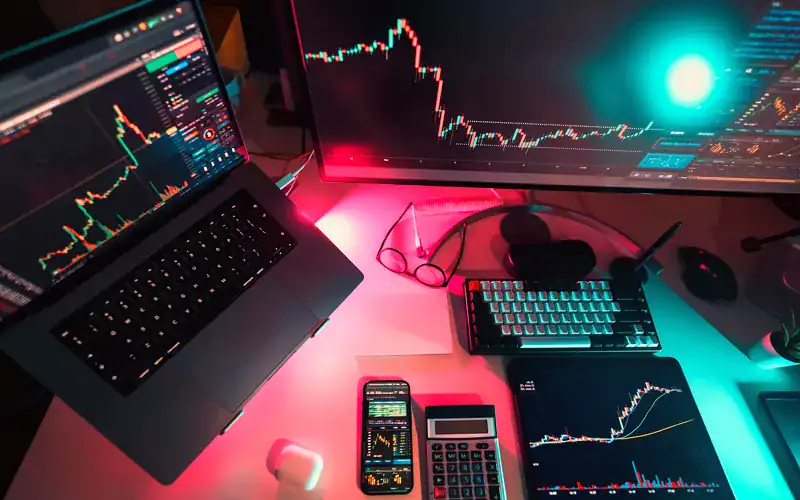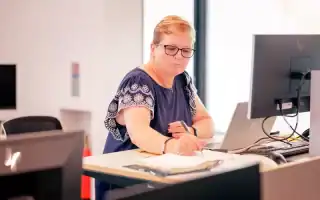Futures can be a fascinating yet confusing topic. However, they are quite simple once you understand the basics. By grasping what futures are and developing solid trading skills, you can unlock opportunities to earn money. In this post, I will explain what futures are and how you can invest in them. Let’s get started!
What Are Futures
A futures contract is a legal agreement to buy or sell an asset at a fixed price on a specific future date. An asset is anything valuable that can be traded, like oil, wheat, or financial products such as currencies or stocks—shares of ownership of a company that you can trade.
These contracts are standardized, meaning they follow set rules for size, quality, and expiration, and they are traded on public markets called exchanges.
How Do Futures Work
Futures trading involves two parties: one agrees to buy an asset in the future, while the other agrees to sell it. They lock in the price at the time the contract is created.
Before diving in, here are some key terms to understand the process:
- Expiration Date: The date when the futures contract ends.
- Settlement Date: The date when the trade is finalized and the final exchange (cash or physical delivery) occurs. This often happens on the same day as expiration, especially for cash-settled futures.
- Spot Price: The current market price of the asset.
- Agreed Price/Futures Price: The locked-in price set in the contract.
- Initial Margin: The minimum amount required in your account to start a contract.
- Maintenance Margin: The minimum balance you must maintain until the settlement date.
- Margin Call: A request for you to deposit additional funds into your account.
Here’s a simple example: Imagine someone is selling a chunk of gold currently valued at $1,000. In a futures trade, you agree on a price with the seller now, and the transaction will occur a month later. The seller might agree to a price of $1,100, anticipating that the price may rise. If the price of gold rises above $1,100, you will profit. If it falls below $1,100, you will incur a loss.
In futures trading, you don’t have to wait until the settlement date to realize gains or losses. Futures contracts are marked to market daily, meaning your account balance reflects the current daily performance of your position. Gains or losses are calculated and applied to your account at the end of each trading day based on the market price.
If your futures position is losing money, you can exit early by selling the contract to another trader. This allows you to lock in profits or limit losses without waiting for the settlement date. You can also close the trade early, a process known as liquidating your position or offsetting your contract.
To initiate a futures contract, you need to provide an initial margin. Since gains and losses are reflected daily, it’s crucial to monitor your balance. If it falls below the maintenance margin, you will receive a margin call. If you do not deposit additional funds, your contract will be closed to prevent further losses.
Most small retail futures traders close their positions before the settlement date to avoid delivery or additional fees. Some roll their positions forward by opening a new contract with a later expiration.
Traders roll forward their futures contracts to avoid the complications of receiving the underlying assets, such as deliveries and logistics, as well as the risks of holding physical assets. This allows them to focus on benefiting from price movements and potential gains leading up to the settlement date without the burden of managing the assets themselves.
What Are The Types Of Futures

Futures contracts cover various areas of the market, each related to a different type of asset:
- Commodity Futures: These involve physical goods such as oil, coffee, or gold.
- Financial Futures: These contracts are based on the performance of financial assets, such as stocks and market indexes.
- Currency Futures: These involve trading and speculating on the performance of both local and foreign currencies.
- Interest Rate Futures: These are used by banks and investors to manage risks associated with changes in interest rates.
- Specialized Futures Contracts: These cover unique assets that fall outside the typical financial instruments mentioned above.
Most beginners start with financial or commodity futures because they are generally easier to understand and trade. But where can you trade futures?
Where To Start Trading Futures
To start trading futures, open an account with a licensed futures broker that provides access to trading exchanges. Choose a broker that caters to beginners and offers demo accounts for practicing with virtual money, allowing you to learn the market without risk.
Look for platforms with educational resources like tutorials and webinars, as well as market analysis tools and customizable charts. Ensure the broker is regulated in your country and offers access to your desired futures markets, low fees, and tools like margin calculators.
Keep in mind that demo accounts do not fully replicate real-money trading dynamics. While they help you learn the basics, trading with real funds involves actual gains and losses, which is crucial for understanding the associated risks. Relying solely on a demo account may lead to underestimating these risks.
Why You Should Trade Futures
Trading futures can be profitable for active traders, as certain assets exhibit predictable price movements that create profit opportunities. However, greater predictability often leads to lower potential gains, as other traders recognize these trends. Factors like volatility, leverage, and market liquidity also play a role.
Investors may also use futures to hedge against potential losses. For instance, if you invest in the Euro (EUR) but expect a short-term decline, you can trade Euro futures to protect against this drop. If the futures trade is profitable, it indicates a decrease in the Euro’s value, minimizing your losses. Conversely, if the Euro rises, you may lose on the futures position, but this loss offsets gains from your original investment, balancing your overall position.
When Is the Best Time To Trade Futures
The best time to start trading futures is after you have gained experience with other financial instruments, such as forex, stocks, and bonds. A solid understanding of these markets can help you predict and analyze trends, making it easier to identify profitable investment opportunities.
Additionally, ensure you have enough time to dedicate to trading futures. Unlike other financial instruments, futures trading requires active involvement. You need to stay updated on news, events, and market charts to make informed predictions that can lead to profits.
The time to trade in futures markets depends on the exchanges you trade on. The best times to trade are typically during high-volume periods when many financial instruments are being actively traded. Trading during these times can lead to better liquidity and more favorable prices.
Conclusion
While the concept of futures is simple, trading them involves significant risk due to leverage and market volatility, so education and risk management are crucial.
Want more beginner-friendly finance tips? Subscribe to our blog, follow us on social media, and check out our YouTube channel for clear, practical guides you can actually use.
Source
- Photo: Unsplash: Jakub Żerdzicki




